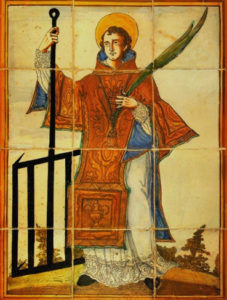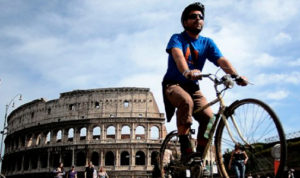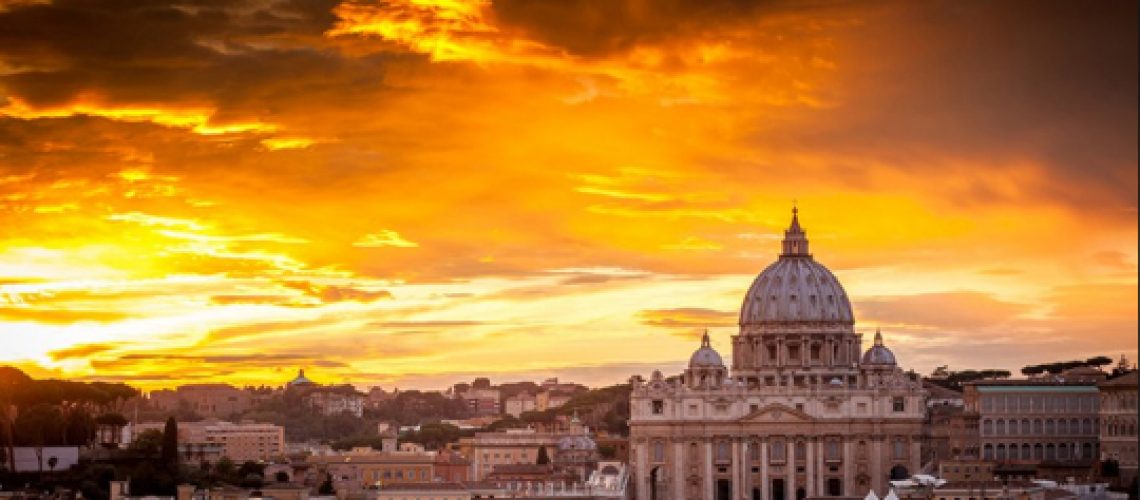 Saint Lawrence, patron saint of the downtrodden and impoverished, is among the most famous martyrs in Italian history. His story is one of the most grisly of any saint’s deaths but unique, in that it is mixed with a dark humor. In fact, he is usually depicted alongside the gridiron on which he was scorched to death and even doubles as the patron saint of Cooks, ironically enough.
Saint Lawrence, patron saint of the downtrodden and impoverished, is among the most famous martyrs in Italian history. His story is one of the most grisly of any saint’s deaths but unique, in that it is mixed with a dark humor. In fact, he is usually depicted alongside the gridiron on which he was scorched to death and even doubles as the patron saint of Cooks, ironically enough.
On Saint Lawrence Day in Rome, feasts are held throughout the city. On the 10th of August each year, for the past thousand or more, Rome honors its Patron Saint at each of the ornate churches named for him. The intersection of art and faith in Rome is fantastically interwoven and most clear to see when dissecting the art and architecture of the many famous churches. Explore this intersection with a guided tour. The Vatican, the most famous religious institution in the world, even displays his head, charred from the gridiron, within its gates for all to pay homage. Make sure to learn all about the history and present of the Vatican while in Rome with a combo ticket to all Vatican museums.
Throughout the city, feasts are held to commemorate the fallen saint and to enjoy the lovely August weather in the capital city. It is common for restaurants throughout the city to go all out for this summertime celebration. Specialty dishes are often added to menus and locals and travelers alike will enjoy trying new flavors and dishes. If you’re interested in learning about Italian cuisine and getting your hands dirty trying your hand at cooking some of it, opt for a cooking lesson and delicious Roman lunch. There’s no better place in the world to try your hand at pasta making or wine pairing than Rome and no better time of year than during the warmest and longest days of summer.
 If you’re feeling the need to move your body after all of the feasting, try a bike tour through Rome and its amazing surrounding hills. The long afternoons of a Roman summer are best celebrated al fresco.
If you’re feeling the need to move your body after all of the feasting, try a bike tour through Rome and its amazing surrounding hills. The long afternoons of a Roman summer are best celebrated al fresco.
Have you celebrated a saint’s day in Italy before? What aspect of the celebration do you anticipate being the most enjoyable? How does your family at home celebrate feasting days? How do you imagine it will be celebrated by local Roman families?

